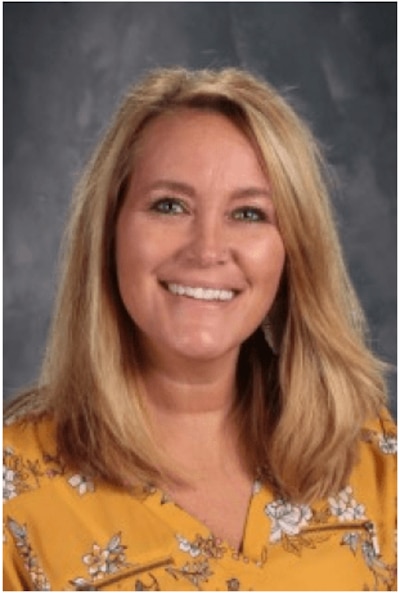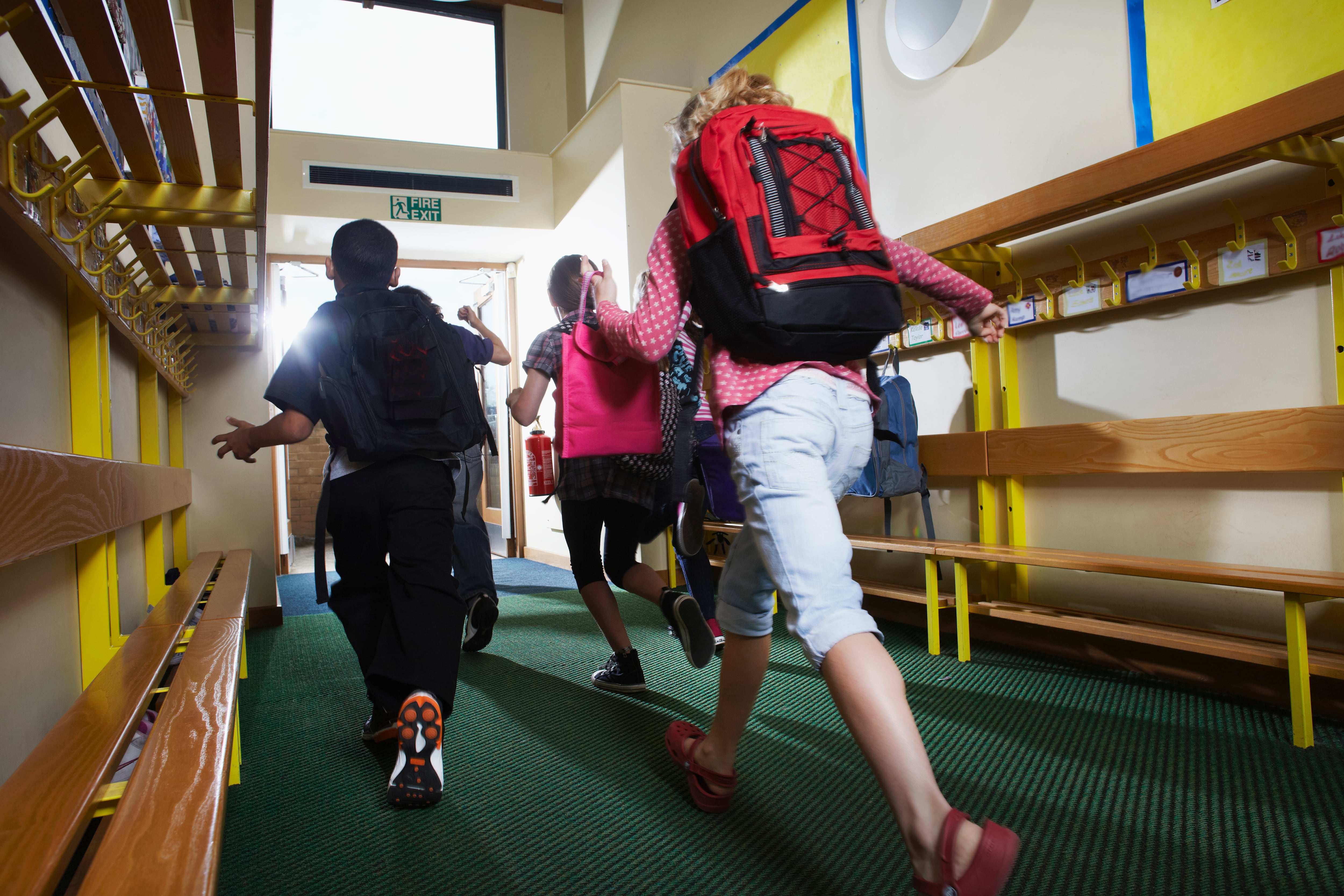Librarian, outdoor education manager, computer technician. Nanette Hanson has worn all these hats and more in her 25-plus years teaching in classrooms across Michigan’s Upper Peninsula.
This May, Hanson received a new title: State Teacher of the Year.
“I probably shook until 10 o’clock that night,” said Hanson, recalling what it was like to get news of her award from State Superintendent Michael Rice. “It was so exciting and very overwhelming but a great opportunity for me.”

A Gladstone native and Northern Michigan University alumna, Hanson has long been invested in the region, going above and beyond to introduce new programming to the schools she’s taught in. Having done her master’s thesis on family involvement in schools, she now advocates for supporting communities and parents just as much as students. She wants every Upper Peninsula parent to feel valued.
Hanson has been teaching first grade at Escanaba’s Lemmer Elementary School for 12 years.
She began her teaching career in 1994 at Fitzharris Alternative High School, before moving to Curtis Elementary School to work with younger children. She quickly learned that teaching in these small, rural schools would mean expanding her job description.
In between chuckles, Hanson recalls how, at Curtis, her responsibilities ranged from music teacher to computer teacher to librarian.
“Because it was such a small, community school, we all worked together to service our kids. Our principal out at Curtis was also the fifth grade teacher!” she told Chalkbeat.
When she again transitioned to teaching high-needs students at Phoenix Alternative High School, she single-handedly got cross country skis donated to the school, after pitching her idea for an outdoor education program to local Escanaba business Mr. Bike and Ski.
And during the pandemic, Hanson was again eager to offer support far beyond her classroom. When Escanaba Area Public Schools provided computers for their online students during the 2020-21 school year, Hanson took it upon herself to make sure every one of her virtual students could log on.
“I got you,” she told families struggling with online learning. “I’ll come to your house, if you feel comfortable with that. I’ll log you in. I’ll help you get your passwords in place — whatever they need to feel successful in helping their kids in this time that we’re all feeling uncertain.”
Hanson recently spoke with Chalkbeat about her philosophy on teaching and what led her to the classroom.
This interview has been lightly edited for length and clarity.
How and when did you decide to become a teacher?
I always knew I wanted to be a teacher. I knew I wanted to make a difference. I knew that I could make a difference. So I went to school to be an elementary teacher, and I went back to school to get my master’s degree, and that’s in administration. But I can’t bear to leave the classroom yet, so I’m not ready to be a principal.
Tell us about your own experience with school and how it affects your work today.
I was exposed to many types of different teachers with different teaching styles. I sort of gravitated toward the teachers who made relationships with me, and I could see that they were making positive relationships with other kids. And those people that took the time to forge relationships with me, in this small town, made me think, ‘Man, I can do that. I can be that for somebody else.’ Because I had a small school system and teachers who took an interest in me, that ignited that spark in me to become a teacher and be the difference in somebody else’s life.
How do you like the Upper Peninsula community and how does it affect what goes on inside your classroom?
I enjoy living in the Upper Peninsula. We’re mostly a rural area. We have smaller schools than a larger urban area, but it makes it nice for us because we have smaller classroom sizes and it allows me to attend to students’ cultural and personal needs. We have diverse cultures up here, and I like to incorporate those cultures in my classroom.
We have a large Native American population, and so I like to incorporate the community. We invite the Indian Education Program to come into our classroom, and they do a wonderful job of sharing the culture with our students, some of whom are Native American.
I think that it’s super important for kids to see themselves reflected in their classroom community and their community at large. I want them to know that their backgrounds are important, that we recognize them, but I also want them to see how they’re different from other people.
What are some of the most important lessons you impart on your first graders each year?
I think that critical relationship building is the most important thing about first grade because I want them to love learning and love school. I want them to know that they’re valuable in the decision-making in their education and that they can drive portions of that.
My biggest thing is creating an atmosphere and a culture that’s accepting and inclusive of everybody and their uniqueness and setting that groundwork so that kids love coming to school.
Grace Tucker is Chalkbeat Detroit’s newest reporting intern. Reach her at gtucker@chalkbeat.org.






